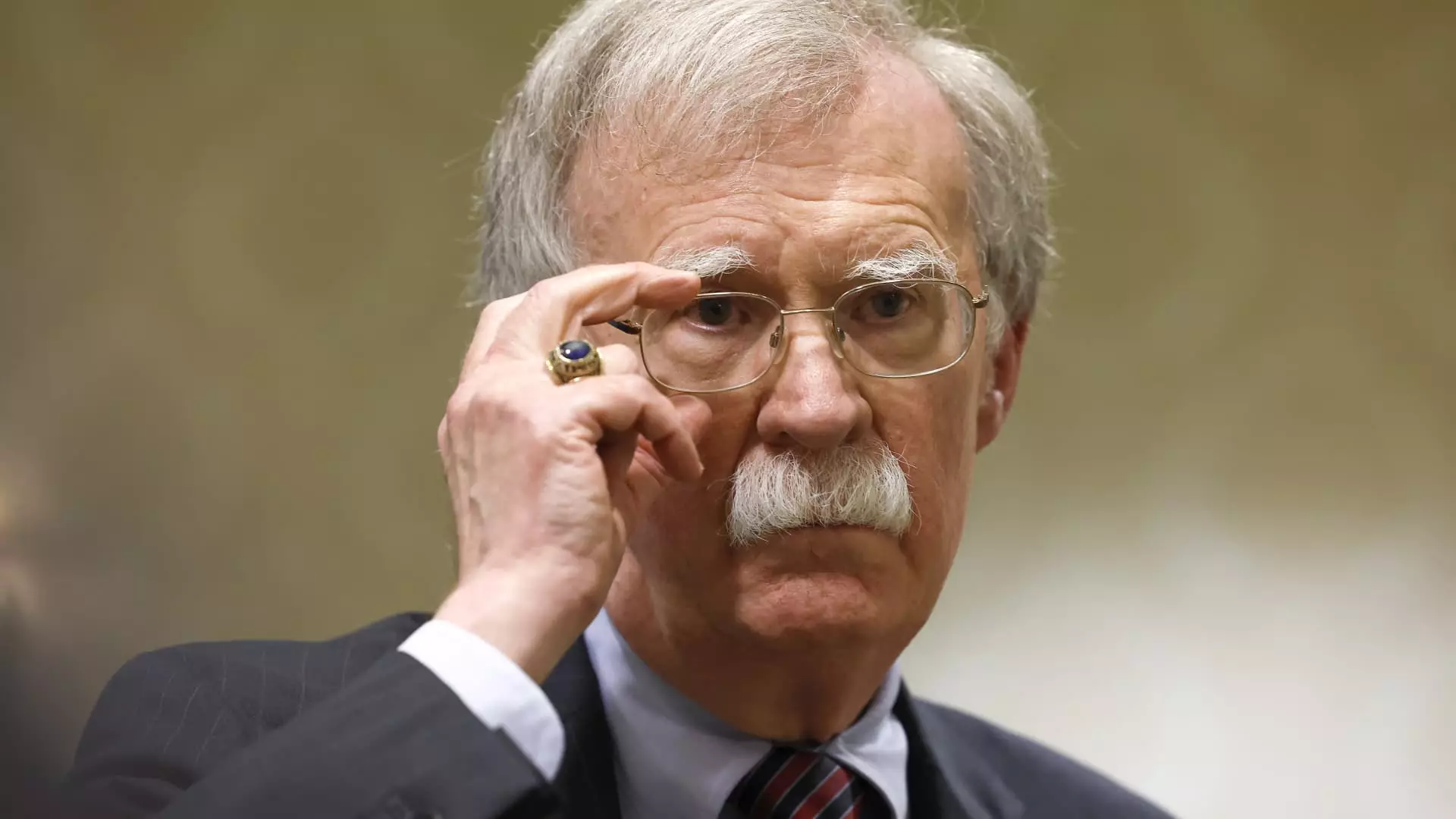Donald Trump’s aggressive approach to trade, particularly his decision to impose sweeping tariffs on China and other nations, has proven to be a perilous strategy that undermines not only international alliances but also the overall stability of the global economy. As former national security advisor John Bolton pointed out, this course of action is not just a tactical error but a monumental strategic blunder with far-reaching implications. Slapping tariffs on your allies while engaging in a trade war with adversaries like China is not just counterproductive; it is a recipe for disaster that could result in significant consequences for the United States.
The Us-versus-Them Mentality permeating Trump’s trade policy is reflective of a deeper misunderstanding about international relations and cooperation. By framing trade as a combative issue—one to be resolved through punitive measures—Trump risks alienating allies that share common interests and concerns regarding China’s unfair trade practices. Instead of fostering unity to confront mutual adversaries, the U.S. has paradoxically found itself in a conflict with its own partners, potentially diluting the strength of the coalition that could be assembled against countries that engage in egregious trade violations.
Shattering Alliances
The fallout from Trump’s tariffs has created a ripple effect across global markets, causing chaos and undermining trust among long-time allies. Key partners like Canada and Germany have found themselves in the crosshairs of U.S. tariffs, which do not differentiate between friends and foes. The fallout is palpable—a weakening of alliances that have been carefully cultivated over decades since World War II. As Bolton indicates, the very foundation of U.S. credibility as a reliable partner is being shredded by these reckless policies.
Moreover, the notion that trade deficits justify tariffs is fundamentally flawed and economically illogical. Economists have long criticized Trump’s blanket approach, which disregards the complexities of global supply chains and interdependence woven into modern economies. The arbitrary imposition of tariffs lacks substantive grounding and risks ushering in a new age of trade wars that could culminate in widespread economic instability, job loss, and increased prices for consumers.
China’s Counteroffensive
As the U.S. engages in this misguided trade war, China has adeptly positioned itself as a potential beneficiary of Trump’s blunders. Rather than being cornered or weakened, China is seizing opportunities to foster alliances throughout Asia. The recent charm offensive by Chinese Premier Xi Jinping seeks to uplift relationships with nations that have also felt the repercussions of U.S. tariffs, signaling that international solidarity may be shifting. Bolton warns that Trump’s failure to recognize these developments not only stymies the U.S.’s ability to tackle China effectively but also allows Beijing to paint itself as a stabilizing force amid global turmoil.
The stark reality is that the tariffs are driving a wedge not merely between the U.S. and China but among U.S. allies that have legitimate grievances against Chinese trade violations. Instead of applying collective pressure on China, the current U.S. strategy has led to disarray. Partner nations are likely questioning the reliability of the U.S. as a leader in global trade, thus emboldening China’s ambitions.
A Call for Rational Diplomacy
To effectively combat unfair trade practices, a more coherent and cooperative strategy is essential. Bolton’s suggestion to unite with Asian powerhouses such as Japan and South Korea, along with European partners, is not just prudent; it is vital in addressing the menace posed by China’s trade aggression. An international coalition, rather than fragmented bilateral confrontations, presents a more robust and credible front against Chinese violations of intellectual property rights and trade rules.
The need for rational diplomacy is not just about economics; it is about the geostrategic landscape that affects global stability. Trump’s “America First” mantra, while appealing in rhetoric to some, often translates to isolationist policies that may leave the U.S. vulnerable and alone. The world has moved towards greater interdependence, and failing to adapt to this reality invites competitive isolation, leaving the U.S. at a strategic disadvantage.
In the grand scheme of international relations, every action has ramifications. The ongoing tariff wars highlight the dangers of unilateralism and underscore the importance of forming alliances based on mutual economic interests and shared values. The focus must shift from confrontational posturing to a united response that holds aggressor nations accountable while fostering trust and collaboration among allies. As the global economy becomes increasingly interconnected, so too must the strategies we employ to navigate its complexities.


Leave a Reply